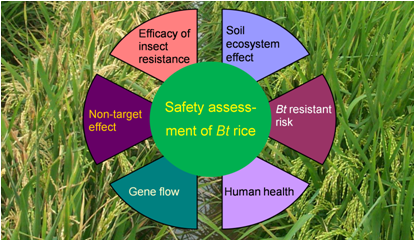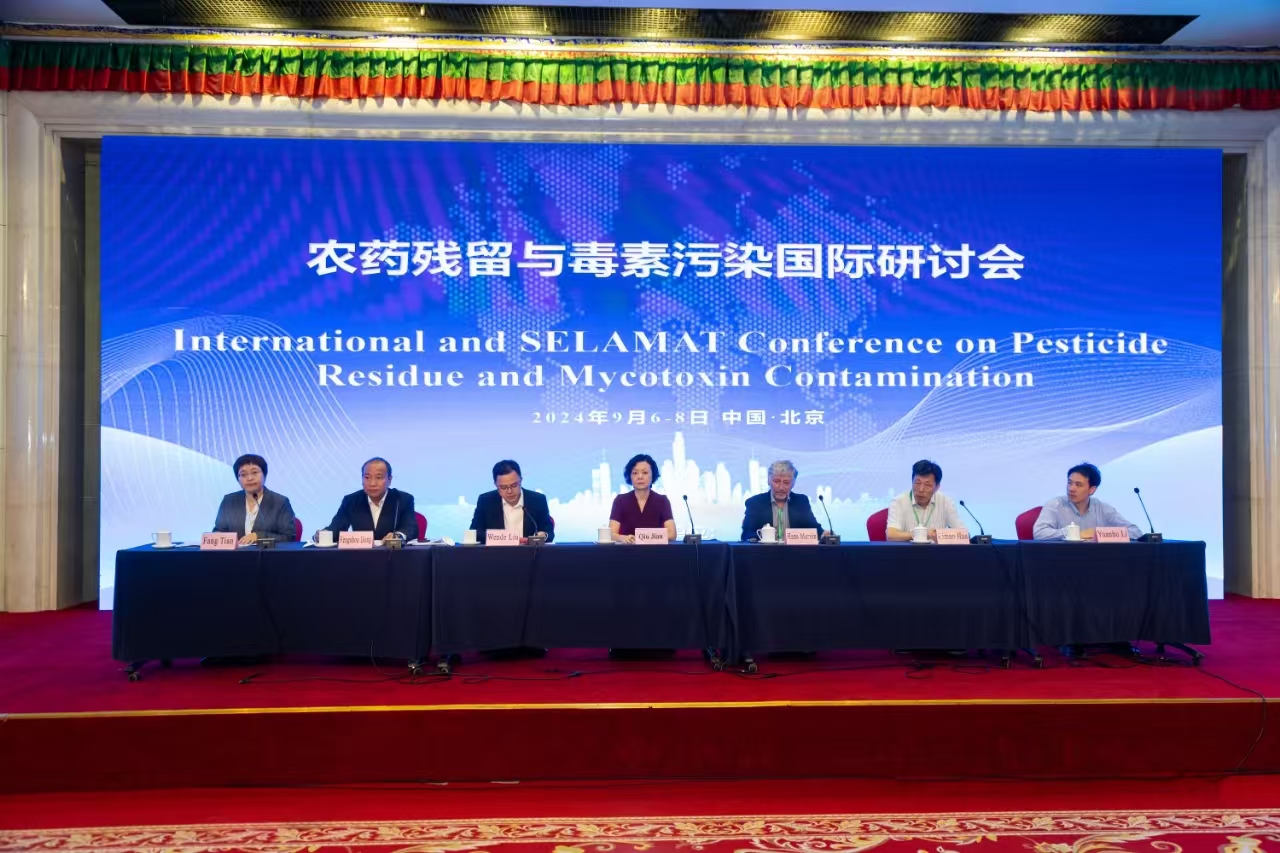The development and status of Bt rice in China
Multiple lines of transgenic rice expressing insecticidal genes from the bacterium Bacillus thuringiensis (Bt) have been developed in China, posing the prospect of increases in production with decreased application of pesticides. Developers of two Bt rice lines – Bt Shanyou 63 and Huahui 1 – have obtained biosafety certificates, but the lines have not been approved for agricultural production. Recently, researchers at State Key Laboratory for Biology of Plant Diseases and Insect Pests, Institute of Plant Protection, Chinese Academy of Agricultural Sciences (CAAS) have published a review paper in Plant Biotechnology Journal, in which the issues facing adoption of Bt rice in China have been systematically discussed.

Safety assessment and biosafety certificates for commercial production of two Bt rice lines
In this paper, the authors explore the issues facing adoption of Bt rice for commercial production in China. A body of safety assessment work on Bt rice has shown that Bt rice poses a negligible risk to the environment and that Bt rice products are as safe as non-Bt control rice products as food. China has a relatively well-developed regulatory system for risk assessment and management of genetically modified (GM) plants; however, decision-making regarding approval of commercial production has become politicized, and two Bt rice lines that otherwise were ready have not been allowed to enter the Chinese agricultural system. The authors predict that Chinese farmers would value the prospect of increased yield with decreased use of pesticide and would readily adopt production of Bt rice. That Bt rice lines may not be commercialized in the near future, the authors attribute to social pressures, largely due to the low level of understanding and acceptance of GM crops by Chinese consumers. Hence, the authors conclude that enhancing communication of GM crop science-related issues to the public is an important, unmet need. While the dynamics of each issue are particular to China, they typify those in many countries where adoption of GM crops has been not been rapid; hence, the assessment of these dynamics might inform resolution of these issues in other countries.
More details are available on the bellow links:
http://onlinelibrary.wiley.com/doi/10.1111/pbi.12464/full
By Yunhe Li
liyunhe@caas.cn
-
 China-Laos Training Workshop on Integrated Management of Destructive Crop Pests and Diseases Successfully held in Laos
China-Laos Training Workshop on Integrated Management of Destructive Crop Pests and Diseases Successfully held in Laos -
 New Plant Protection: New challenge and new opportunity for plant protection
New Plant Protection: New challenge and new opportunity for plant protection -
 International and SELAMAT Conference on Pesticide Residue and Mycotoxin Contamination Held in Beijing
International and SELAMAT Conference on Pesticide Residue and Mycotoxin Contamination Held in Beijing -
 CAAS President Meets Chairman of ASEAN FAW Taskforce
CAAS President Meets Chairman of ASEAN FAW Taskforce
